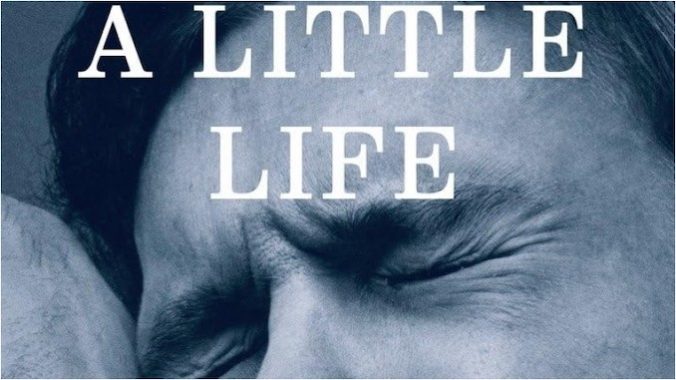How Hanya Yanagihara’s A Little Life Blew Up BookTok (And Why That’s Not a Good Thing)

When you really take the time to look into it online, A Little Life by Hanya Yanagihara is not necessarily as widely loved as its bestseller status, Man Booker Prize nomination, and striking TikTok popularity might indicate. In fact, its widespread success indicates that the idea of writing a best-seller is coming to mean less and less these days.
I entered the A Little Life world after hearing friends rave about it, knowing the title as a well-respected piece of literature that had a significant reign over the TikTok trending category, and wrongfully expected it to blow my mind. I should have remembered that a book that is successful on BookTok is not always a book that might be not actually worthwhile as a piece of literature, but simply as something easily digestible and marketable to the general public.
These thoughts are not utterly new, as I’ve seen a lot of discourse online, including an extremely well-articulated point by Andrea Long Chu, who wrote a piece in Vulture around the metaphor that A Little Life’s writing is similar to the mental disorder Munchausen syndrome by proxy. Many others outside of the TikTok realm were astounded by Yanagihara’s inability for the profound and serious fixation on torturing her characters.
Its hype feels eerily reminiscent of the talk I’ve heard surrounding other popular, largely relevant-through-BookTok novels, like Normal People by Sally Rooney or The Seven Husbands of Evelyn Hugo by Taylor Jenkins Reid. To try to describe what feels so wrong about these novels feels blunt and hurtful, a criticism aimed at authors who were only trying to write entertaining novels and stories that would stick with people. But they’re all consistent in one thing: they remind me of the same kind of stories I used to read at age 12 or 13 on Wattpad. (Wattpad is a self-publishing platform mainly used for fanfiction, and largely known for its clumsily written stories that once engaged teenagers’ attention spans, sometimes for its heavy-handed infliction of trauma amongst characters.)
While Normal People’s story was valuable and an interesting exploration of how we often misunderstand each other in relationships, the way that emotional patterns transform themselves throughout a relationship, and how we each truly live in our own realities, which are distinct from the insecurities we develop through living. It was truly magical as a TV show adaptation, but its writing was, again, astoundingly unimpressive. Though, the story thrived because it was digestible. A Little Life’s success has been similar.
The novel itself is a slowly-paced 800 pages, consistently dimming itself into an ending that feels like it has already achieved its peak and out-run itself after the reader earns their way through the beginning details of the story. Folnlowing four men through a lifetime of friendship, addiction, and ambition, Yanagihara coerces her audience to delude themselves into believing her story will go somewhere aside from repeatedly bathing its main character Jude St. Francis in the same pain and trauma he spawned with on page one. (I mean spawn very literally, the author puts very little effort into making Jude into someone worth caring about or giving his journey or the friendship we are meant to grow so invested in any real meaning.)
By the 300-page mark, I became weary that the story would—or could—be anything other than what had already been shown to me. There was no big resolution that made any of it worth it, and maybe that was Yanagihara’s point, though assuming that intentionality didn’t make the reading experience any more bearable. I trudged from there through the rest of the story and to its inevitable, predictable end. Maybe not every book needs to be so serious or contain some profound throughline, and I may be speaking from a veiled perspective, particularly fond of questioning myself and unpacking moral problems. I love when a book can make me do this, but that isn’t what everyone is always looking for (and that’s totally okay). But A Little Life seems to pose as something it is not.
-

-

-

-

-

-

-

-

-

-

-

-

-

-

-

-

-

-

-

-

-

-

-

-

-

-

-

-

-

-

-

-

-

-

-

-

-

-

-

-








































